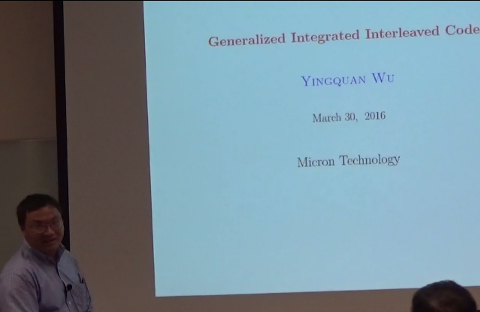
Tang and Koetter proposed generalized integrated interleaving Reed-Solomon codes in which each code of the second layer belongs to different subcode of the first layer code, based on the rationale that the strongest code is used to correct the most corrupted component word while the weakest code corrects the least corrupted component word. The authors also presented a decoding algorithm which is sophisticated due to handling miscorrection of the interleave self-decoding, and cumbersome due to large amount of repetitive operations. In this paper, we first demonstrate that it is essential to neglect the first layer miscorrection for their practical applications. We then devise an efficient decoding algorithm by ignoring the first layer miscorrection and by intelligently reusing preceding results during each iteration of decoding attempt. Neglecting the first-layer miscorrection also enables to explicitly and neatly formulate the decoding failure probability. We further construct an efficient systematic encoding algorithm, which had been open. We also propose a novel generalized integrated interleaving scheme for binary BCH codes, prove a lower bound on the minimum distance, and derive a similar encoding and decoding algorithm as that of Reed-Solomon codes.
Dr. Cody (Yingquan) Wu received both the B.S. and M.S. degrees in mathematics from Harbin Institute of Technology, P.R. China in July 1996 and July 1997, respectively. In August 2000, he received the M.S. degree in electrical engineering at the State University of New York at Buffalo. In October 2004, he received the Ph.D. degree in electrical and computer engineering at the University of Illinois at Urbana Champaign. Dr. Wu is currently with Micron Technology, following fast acquisition of Tidal Systems, an SSD controller startup cofounded by him and his partner Mike Lee. In Tidal, Dr. Wu worked as the chief scientist and was responsible for algorithms and architectures for data compression, error control coding and digital signal processing for solidstate drive. Dr. Wu’s research interests lie in the areas of coding theory, signal processing, data compression, artificial intelligence, and VLSI designs.
